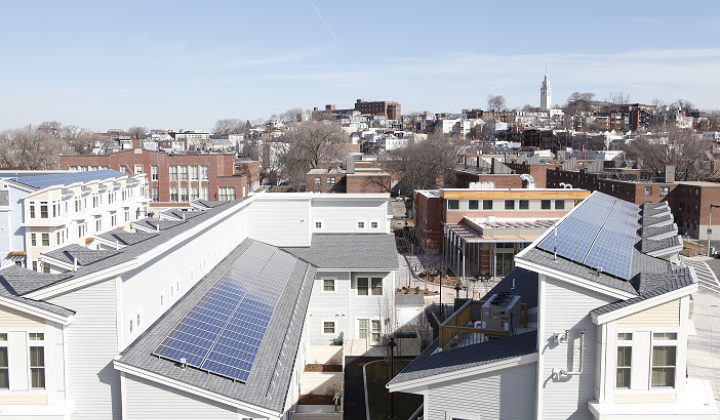Why you need to take utility cost estimates for solar with a giant grain of salt

The utilities claim to support solar but then go on to say they have the interest of ratepayers in mind when they advocate for leaving net metering caps in place. The cost of solar is simply too high, they claim, and net metering caps will protect ratepayers as the Commonwealth figures out what to do on the solar policy front. To bolster their position, the utilities toss out cost figures for solar programs that range in the billions of dollars. Listening to their rhetoric, you'd think we simply can't afford to keep paying for solar. The truth is, we can't afford not to.
Don't believe me? Would you believe Paul Hibbard (DPU chairman from 2007-2010) from the Analysis Group? In a paper released this past May, Paul evaluated utility cost claims regarding solar, with a particular focus on the numbers provided during the Net Metering and Solar Task Force process.
In his paper, Paul notes that the utility cost claims were not "investigated or confirmed" during the Task Force process, yet this did not prevent the Task Force Co-Chairs from citing them as a basis for their position not to immediately raise net metering caps. His review of the cost figures found them lacking in several key respects. Specifically, their numbers were "incomplete in scope and detail, misleading, contain[ed] calculational and methodological flaws." His greatest concern with their numbers were "the various simplifications, assumptions, and omissions in the companies’ analyses [that] tend to systematically ignore or understate net metering benefits, while overstating the estimated cost impacts on ratepayers."
Paul further expounds upon the risk of focusing on the costs while ignoring the benefits of solar, and net metering in particular:
As with many valuable public policy programs that one way or another involve the regulated utilities, it is a mistake to focus myopically on the cost side of the ledger without a comprehensive review of program benefits. The Task Force Report and numerous analyses carried out across the U.S. demonstrate the depth of economic, fuel diversity, technological progress, climate, and other benefits that flow from the success of net metering. But while the programs have contributed to startling technical advances in solar PV systems over the past several years, the need for tailored rate mechanisms remains – failure to extend net metering may have dire consequences for an industry that has thrived in Massachusetts.
Providing some advice to the Legislature as it contemplates what to do about net metering caps and solar policy in the Commonwealth, he says:
In its deliberation the Legislature should recall the vision for the electric industry it adopted in 2008 with unanimous passage of the Green Communities Act (GCA). The overriding purpose of the GCA was to move away from energy imports that shift our consumers’ dollars to out-of-state fossilfuel providers, mitigate the price risk associated with the pricing volatility of natural gas, inject more of our energy dollars into the local economy, and do it in a way that helps address the social and economic risks of climate change in a manner consistent with Massachusetts’ commitment to reduce greenhouse gases – in effect, part of an “all-of-the-above” strategy to address key economic, energy, and environmental objectives. And it has worked: a recent study found that first six years of GCA implementation results in $1.2 billion in net economic benefits to Massachusetts, more than 16,000 jobs, expansion of in-region generation by 2,800 megawatts (MW), and dramatic reductions in the need for generation from existing – or new – fossil-fuel fired power plants in New England.
In summary, Paul agrees that there is a cost to solar. But there are also benefits. His analysis also shows that it's a mistake to take the utilities at their word on the cost issue and it's a mistake for the Legislature to put the brakes on an industry that has brought so many benefits to Massachusetts. Common sense, public opinion and the Commonwealth's climate change goals favor raising net metering caps now while fully evaluating the costs and benefits of solar to create a sustainable, long-term market for solar.
Let's make it happen.


